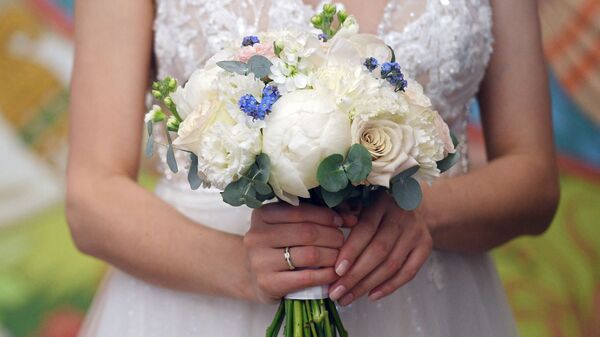Researchers have found that religious differences between spouses usually become a more difficult obstacle affecting living together than ethnic ones, but inter-cultural dialogue can help to overcome them. The results of the study are published in the Behavioral Sciences journal.
According to MSUPE scholars, spouses’ affiliation to different religions and ethnic groups usually prevents them from having an accord when it comes to life and family goals and values, which in turn provokes numerous conflicts. At the same time, inter-cultural families are not uncommon today, but special studies of the relationship between spouses in such couples reveal conflicting results.
In their study, researchers have tried to detect ways to overcome such contradictions. They have used standard methods of empirical research and statistical analysis, and for the first time have compared the influence of factors of religion and ethnicity on the life and family values of partners.
“If we talk about the general hierarchy of values of people in inter-cultural marriages, we found that it is especially important for them to have an ability to rely on themselves and to control their environment,” Elena Chebotareva, associate professor from Department of Child and Family Psychotherapy of MSUPE, told Sputnik.
“The bigger the cross-cultural differences are in a couple's relationship, the more the spouses are committed to the values of their culture and are focused on observing the norms prescribed by it. When it comes to the family sphere, traditional family values, such as living together, parenthood, are more important for inter-cultural couples," she added.
To identify the role of religious differences in inter-cultural marriages, the scientists examined couples in which Russian women are married to Eastern men: in one group – to Muslim Arabs, in the second – to Caucasian Christians. The control group included mono-cultural Russian couples.
According to the researchers, as predicted, they found that in both types of inter-cultural marriages, the conformity of life values between spouses was significantly lower than in mono-cultural couples. At the same time, a common religion contributes to a greater unity of values in a couple and a more traditional distribution of roles between a man and a woman, in comparison to a multi-faith relationship.
"The life values of men and women in inter-cultural couples with a common religion differ, but complement each other well, allowing them to be a good team together,” Chebotareva said. “This is exemplified by a higher rate of marriage satisfaction in such couples, compared to couples with different religions. In general, belonging to different cultures, both in inter-ethnic and inter-faith families, contributes to a more active process of harmonisation of life and family values of spouses, the development of a new common culture, a more responsible building of relations."
The results of the study provide a better understanding of how values are aligned in different types of inter-cultural couples, and how this affects their satisfaction with marriage, scientists say. They assume that based on these data, practical psychologists and social workers will be able to develop more accurate strategies for resolving conflicts and establishing mutual understanding between spouses in inter-cultural couples, and provide more successful psychological and social assistance to migrants.
MSUPE staff plans to continue researching the problems of inter-cultural marriage. They are now set to carry out a comparative analysis of marital relations in couples with different status of residence (in the husband's country / in the wife's country / in a third country), and to conduct quantitative and qualitative research, including interviews with spouses from inter-cultural couples. This will allow a better understanding of the mechanisms of development of their relations and the role culture plays in this process.




